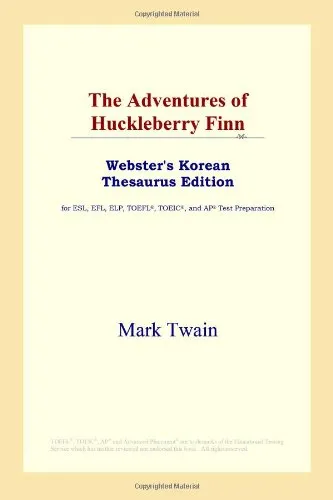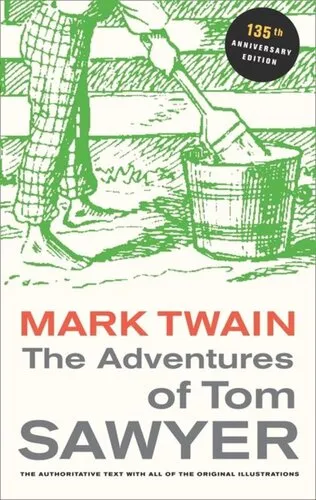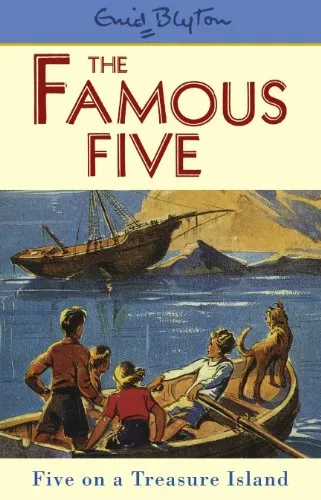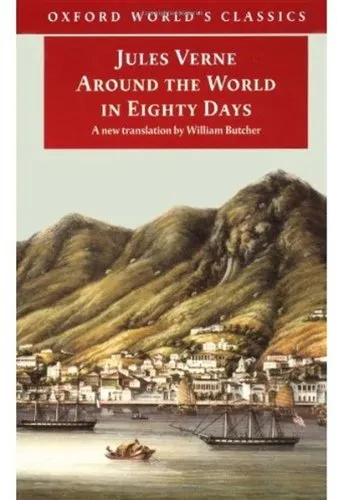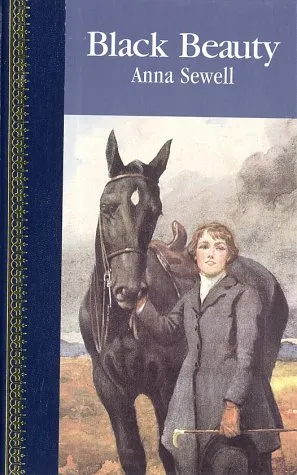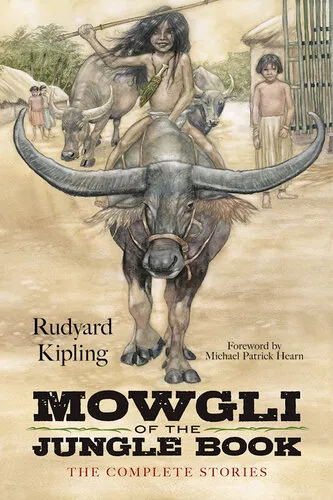Around the World in Eighty Days
4.3
Reviews from our users

You Can Ask your questions from this book's AI after Login
Each download or ask from book AI costs 2 points. To earn more free points, please visit the Points Guide Page and complete some valuable actions.Related Refrences:
Introduction to "Around the World in Eighty Days"
Originally published in 1873, Jules Verne's "Around the World in Eighty Days" is a captivating story that invites readers on an extraordinary adventure across the globe. The novel combines elements of travel literature, mystery, and adventure, serving as a testament to Verne's visionary storytelling and profound understanding of the modern world.
Detailed Summary
The journey begins with Phileas Fogg, a meticulous and enigmatic English gentleman of leisure, who is known for his punctuality and strict routines. One day at the Reform Club in London, he enters into a heated debate and wagers £20,000 that he can circumnavigate the globe in just eighty days—a feat deemed impossible by his peers due to the logistical challenges and the state of the world's transport systems at the time.
Accompanied by his loyal French valet, Passepartout, Fogg sets out to accomplish this seemingly insurmountable challenge. The itinerary that follows is as varied as it is ambitious: crossing continental Europe and passing through exotic locations like the Suez Canal, India, Hong Kong, Japan, and the United States. Along their audacious journey, Fogg and Passepartout encounter a multitude of obstacles, from being pursued by the relentless Detective Fix, who believes Fogg to be a bank robber, to daring rescues, unexpected detours, and the relentless races against time.
The novel combines a whirlwind of adventure with a gentle exploration of different cultures and landscapes. It cleverly questions Victorian society's intellectual superiority while openly marveling at the era’s technological advancements.
Key Takeaways
- Phileas Fogg's journey emphasizes the rewards of taking calculated risks and the virtues of perseverance and determination.
- The story provides insight into the cultural dynamics and technological aspirations of the 19th century.
- Verne’s work highlights the theme of time and the human drive to conquer and comprehend the world.
- The novel illustrates the importance of companionship, as shown through the dynamic relationship between Fogg and Passepartout.
- It prompts readers to reflect on the nature of travel—not merely as a physical journey, but as a quest for personal growth and understanding.
Famous Quotes
"Anything one man can imagine, other men can make real."
"I see that it is by no means useless to travel, if a man wants to see something new."
Why This Book Matters
"Around the World in Eighty Days" remains significant due to its timeless appeal and universal themes. It showcases Jules Verne’s ability to amalgamate rigorous scientific inquiry with human curiosity and imagination, thus offering a blueprint for modern science fiction. The novel has transcended literary realms and inspired generations to embrace travel, challenge norms, and kindle their sense of wonder and discovery.
The book stands as a chronicle of a historical moment poised on the threshold of the industrial age and a world speeding toward globalization. Verne’s vision and the story’s breathtaking boldness continue to resonate, cementing its status as a classic of adventure literature and serving as an enduring symbol of human ambition and ingenuity.
Free Direct Download
You Can Download this book after Login
Accessing books through legal platforms and public libraries not only supports the rights of authors and publishers but also contributes to the sustainability of reading culture. Before downloading, please take a moment to consider these options.
Find this book on other platforms:
WorldCat helps you find books in libraries worldwide.
See ratings, reviews, and discussions on Goodreads.
Find and buy rare or used books on AbeBooks.
1482
بازدید4.3
امتیاز0
نظر98%
رضایتReviews:
4.3
Based on 0 users review
Questions & Answers
Ask questions about this book or help others by answering
No questions yet. Be the first to ask!

